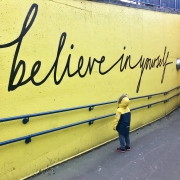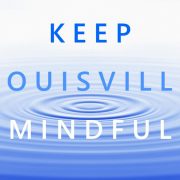Tag Archive for: depression
How to Respond When You Get Triggered
/in Holidays, Relationships/by Megan BartleyWritten by Megan Bayles Bartley, MAMFT, LMFT
The holidays are upon us and that usually means lots of time with our extended family. 2020 has no doubt brought an extra helping of limitations and pressure for us to navigate this season.
Do you dread this time of year or certain aspects of it? Do you wish you had ways to cope with the parts you don’t enjoy? Is there that certain someone who triggers something within you every time you see or talk to them?
Remember this: You only have control over yourself…how you think about things, your behaviors, how you are feeling, and what you say.
- Act, don’t react to the times when you are triggered. his means slowing yourself down enough to regain control of the situation by choosing how you want to respond (if at all) to inappropriate, mean comments or people. Have a plan for how to respond before you are in the situation. “If he says something mean, I will just look at him blankly while taking some deep breaths to soothe myself. Or if I decide I can’t not say anything, I’ll just say ‘Huh, that’s an interesting perspective, or Huh, that’s a good question, I’ll have to think about that.'”
- Acknowledge and validate your feelings that get triggered, “Of course I want to scream at her for commenting about my weight, that was inappropriate for her to say.” Take a deep breath and know that you have zero control over that other person and instead you will take control of yourself and respond appropriately, if at all.
- Let yourself off the hook. Often we think we have to respond to negative comments or inappropriate questions so we can defend ourselves or to make sure the other people in the conversation don’t feel awkward. Remember to be your best adult self and sometimes saying nothing at all communications more than we could ever say with words. In fact, if we don’t respond, it shifts the awkwardness back to the sender.
Ultimately be gentle and tender with yourself and others. Allow each new moment to unfold as it needs to. Trust that you will do your best in each new moment and allow others the opportunity to be their best in each new moment.
Awakening the Autopilot with Alcohol
/in Alcohol/by The Mindfulness CenterWhen we think of ourselves being on autopilot it can be helpful to consider that feeling as a trance. We go in and out of trances multiple times throughout the day. A trance can be a simple day dream or perhaps being zoned out while driving. There can be positive and negative trances which can influence our behavior.
Alcohol can create a strong trance.
When we drink too much and become inebriated we are in a bit of a trance. Continued use of alcohol can create a different type of trance. When our use of alcohol begins to negatively affect our lives we can experience two things; shame and guilt. Shame, which can be described as “I am bad,” can put us on autopilot by believing we are “bad.”
When assessing our use of alcohol it can be very helpful to consider our use as a relationship. We all have a relationship with alcohol. And with any relationship, it can be healthy or unhealthy. If we notice our relationship with alcohol to be unhealthy it could be because we might be on autopilot or in a trance.
A negative relationship with alcohol can be tricky. Alcohol may want to stay in a relationship with us even when we do not. It can manipulate our thinking or judgment in order to stay. Alcohol could make us rationalize and/or justify our behavior to maintain the relationship.
If we notice we might be in a trance and have a negative relationship with alcohol there are a few things we should do to protect us and make sure we are healthy.
- First, we would want to find any ways our use has created a loss of self. A loss of self could be a loss of happiness or peace. It could be a loss of a friend or family member. Or it could be a loss of a hobby.
- We would then need to set up boundaries to protect ourselves from alcohol and regain anything we may have lost. Not drinking and ending a relationship with alcohol is one boundary someone might make. Another, could be to limit the amount of alcohol an individual uses.
- Lastly, if the trance of alcohol puts us in is very strong, therapy is a must. Therapy can help us heal from the affects alcohol and end the trance it creates.
Living with Trauma
/in Trauma/by The Mindfulness Center“Trauma has become so commonplace that most people don’t even recognize its presence. It affects everyone. Each of us has had a traumatic experience at some point in our lives, regardless of whether it left us with an obvious case of post-traumatic stress.” ~Peter Levine
What living with trauma can look like:
- Feelings of hopelessness and beliefs that aren’t meant for you
- Constantly finding ways to escape from reality
- Sleeplessness, fatigue, nightmares, sleep disorders
- Avoidance of anything connected to a traumatic event
- Difficulty regulating emotions like anger, fear and sadness
- Reoccurring flashbacks of past events
- Extra sensitivity to physical and emotional pain
- Addiction to alcohol and other substances
- Increased panic and anxiety
Everyone responds to trauma differently, and finding healthy ways to cope and heal from those events and their after-effects is key to living a healthy life. It’s easy to minimize, normalize, and rationalize some of these less severe symptoms, but if healthy coping mechanisms are not developed, they can lead to patterns of self-sabotage and withdrawal from the world and relationships. Like Peter Levine also said ,”Trauma is a fact of life. It does not, however, have to be a life sentence.”
The most courageous thing we can do is love our self during times of pain and struggle.
Being aware of our story, and owning it, requires immense bravery. After all, to be human is to think and feel, and our emotions are here to try and protect us. If we see anxiety and stress as friends and offer them empathy, kindness, and thankfulness, they will be able to relax and dissipate. When you feel them approaching, welcome them, be kind to them, be thankful that they are there, and then invite them to leave. Bringing our minds to the present can reduce stress, anxiety, and connect us to everything around us.
An Exercise In Joy & Success
/in Self Love/by Megan BartleyWritten by Megan Bayles Bartley, MAMFT, LMFT
“…the measure of success is absolutely the amount of joy you feel.”
Take a minute and think about a time when you felt pure joy. Oftentimes we think of moments that were life-defining. When we proposed to our sweetheart and heard “YES!” Or maybe our wedding day, or the day our first child was born, or when we got that new job, that raise or promotion. Unfortunately for many of us our emotions fluctuate fairly rapidly and it’s rare that we can maintain that feeling of pure joy. But what if it didn’t have to be this way? What if we could live joyful, or joy-filled, lives and experience this joy a majority of the time? Well, we can!
“Yeah, right!” I hear you saying.
Give me a minute to explain… What we’re talking about is viewing your life from a bit of a different perspective. Instead of a perspective of LACK – “I’ll feel joy when I get that raise, meet the right person, lose 20 lbs, etc.” – and shift into a thinking of ABUNDANCE – “Everything is exactly as it needs to be. All I need to be is myself. Everything I need to know is already within me.”
See the difference?
Here’s what I want you to try: Write down the above messages of Abundance on sticky notes and stick them on places you look often – on the microwave, on your dashboard, at the bathroom mirror, on your computer screen. Make an effort to look at the messages and remember that feeling of Joy. Soon you’ll start to associate the two together – the feeling of Joy with the message “Everything is exactly as it needs to be.”
Stick with it for 21-30 days and see what happens. This is how long it takes to make a shift in belief, perspective or behavior change. You are actually building new neural pathways in your brain. The more attention you give the new perspective, and don’t give attention to the former perspective, the stronger the new perspective of Abundance becomes and the perspective of Lack begins to die off. Remember, what we feed, grows. Give it a try! What do you have to lose?!
When we focus on Joy FIRST, our lives will begin to shift so we experience success in multiple areas.
If there is an area that seems like a problem area now – your relationship, your job, your living situation – they will work themselves out as you are focusing on joy. This might mean they will begin to bring you joy in new ways because you are seeing them differently OR because you see clearly now that there is no way they will bring you joy and you will make confident decisions to move beyond them.
Wouldn’t it be AWESOME to feel Joy AND Confidence?! Oh yeah, it can happen. You can do it. Stay focused and give it 21-30 days. Be gentle with yourself. You will mess up but chalk it up to a learning experience and keep moving forward. Growth comes with growing pangs.
And if you find you need some help, we are always here to be a guide (and cheerleader!). Keep at it! We believe in you!
Trusting the Process and Your Heart
/in Mindfulness, Relationships, Self Love/by Megan Bartley
Written by Megan Bayles Bartley, MAMFT, LMFT
Trust is not easy.
When we are “trusting” something or someone, it assumes there is some uncertainty and we’re “having faith” or trusting something positive will happen. And typically, we don’t always love to feel uncertainty.
However, most of life is fairly uncertain. We think we know what’s going to happen but then we say, “Or I could get hit by a bus tomorrow!” However, do we really think we’ll get hit by a bus? No.
What this shows us is that even in the uncertainty and the possibility of getting hit by a bus, we TRUST that we likely won’t get hit by the bus and therefore are fairly calm with the uncertainty of what will happen tomorrow.
What is really happening psychologically when we do this is sending ourselves a subconscious message that we actually think good things are most likely to happen (we’ll be alive tomorrow) more so than the negative will happen (getting hit by the bus).
I love, love, love “The Law of Detachment” chapter in Deepak Chopra’s book The Seven Spiritual Laws of Success. He writes,
“In detachment lies the wisdom of uncertainty…in the wisdom of uncertainty lies the freedom from our past, from the known, which is the prison of past conditioning. And in our willingness to step into the unknown, the field of all possibilities, we surrender ourselves to the creative mind that orchestrates the dance of the universe.”
How poetic and reassuring; compassionate and wise. Calming even.
I wonder if you noticed how it spoke to your head or your heart, your thinking brain or your feeling brain, or both.
Or maybe you even felt the two, the thinking brain and the feeling brain, connect with each other in a way that left you feeling calm or some other positive emotion.
If not, give it another read and see what happens. Maybe something even more profound might happen. Maybe you’ll notice something come to you in a few days, a week, or even a month from now.
May we all be willing to step into the unknown; to allow ourselves the opportunity to see all the possibilities the universe has to offer.
When the Dust Settles: Avoiding Gaslighting, Toxic Positivity, & External Validation
/in COVID-19/by The Mindfulness CenterWritten by Megan Bayles Bartley, MAMFT, LMFT
In Julio Vincent Gambuto’s brilliant article, “Prepare for the Ultimate Gaslighting” we see that the treadmill we’ve been on for a decade has abruptly stopped. When life returns to “normal” or some semblance of a “new normal” the economy is going to need a huge boost and we will be sold a lie that we need stuff to soothe ourselves from the trauma we’ve experienced due to COVID-19.
Gambuto’s article refers to Gaslighting as: “Manipulation into doubting your own sanity.” The example he gives is, “Carl made Mary think she was crazy, even though she clearly caught him cheating. He gaslit her.”
The last several weeks of realizing that the treadmill is broken and there’s no way we’re ever getting back on it has been a traumatic experience whether we realize it yet or not. While we’re “in” the traumatic experience we go into survival mode (fight, flight, or freeze) to get through it. It’s not until the trauma has stopped and things go ‘back to normal” that we begin to see the effects of trauma unfold.
Most of us are quite resilient and will recover from the isolation of this pandemic just fine. Some of us will be shaken up for a while and need help getting our bearings. If this is you, therapy can be extremely helpful. Look for a wonderful therapist who will validate your experience and allow you to move beyond it as you are ready. Don’t get caught up in toxic positivity which forces you to think that if you aren’t “staying positive” something’s wrong with you. That’s a load of shit. You are human and your moods are watery, shifting and changing with the tides. A good therapist helps you make friends with the ocean so you can navigate it and find the balance that is best for you in each new moment as you ride the wave of life.
“Rewiring Your Brain” at Louisville Salt Cave
/in 2-Minute Meditation, Mindfulness/by Megan Bartley
Nicole Bartlett and Kim Rash of Louisville Salt Cave have invited me back for their August Speaker’s Series.
Come hear me speak on using Mindfulness to “Rewire Your Brain,” August 31st at 6pm.
I’m looking forward to this opportunity to not only pass along some helpful nuggets of wisdom to help you change a pattern of thinking, feeling, or behaving, but also to offer an experiential practice that you can take with you anywhere you go! Learn to calm your mind and body, focus your attention, regulate your emotions, and find balance.
Register online on the Salt Cave’s website!
I’ll see you there!












